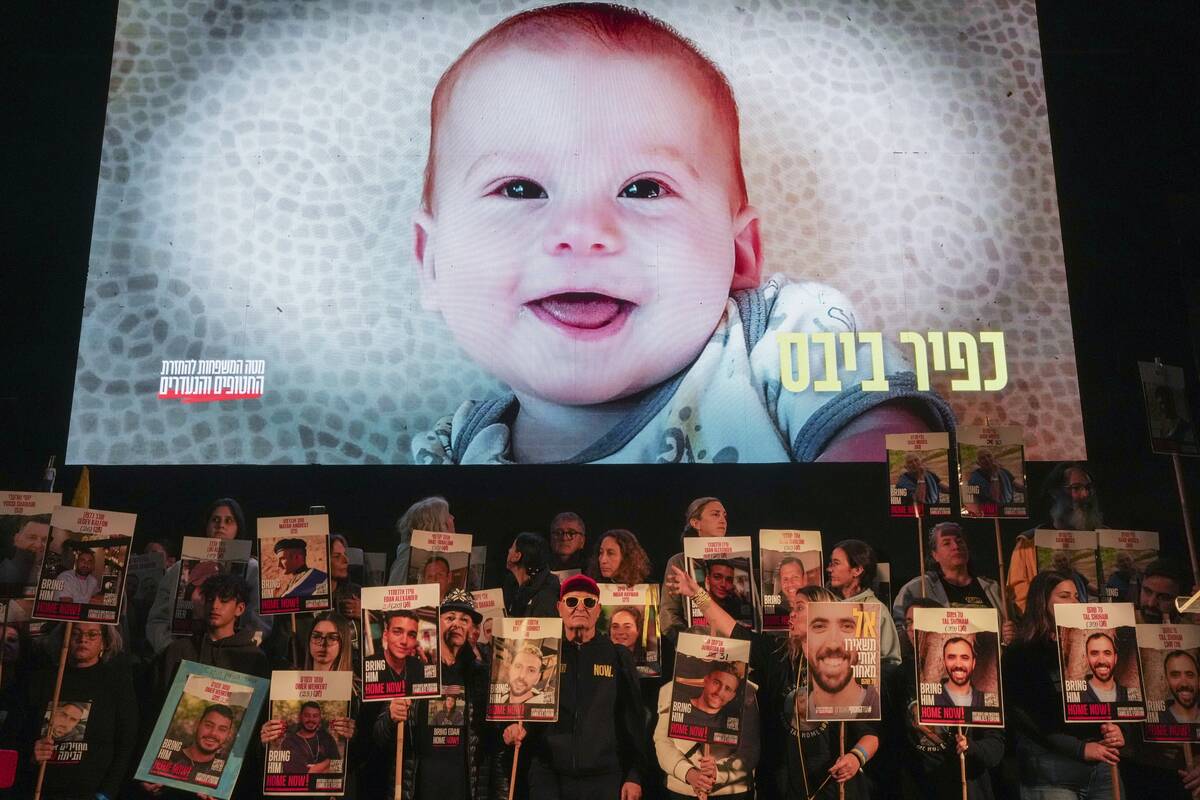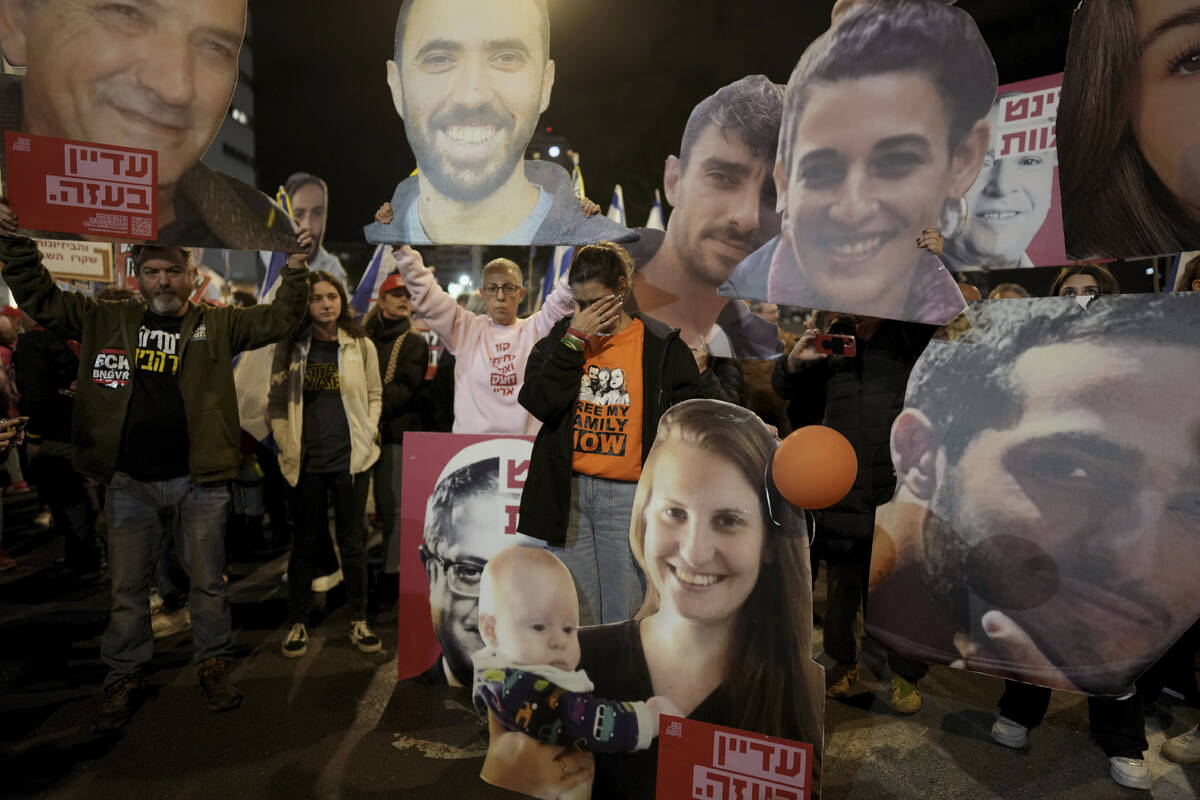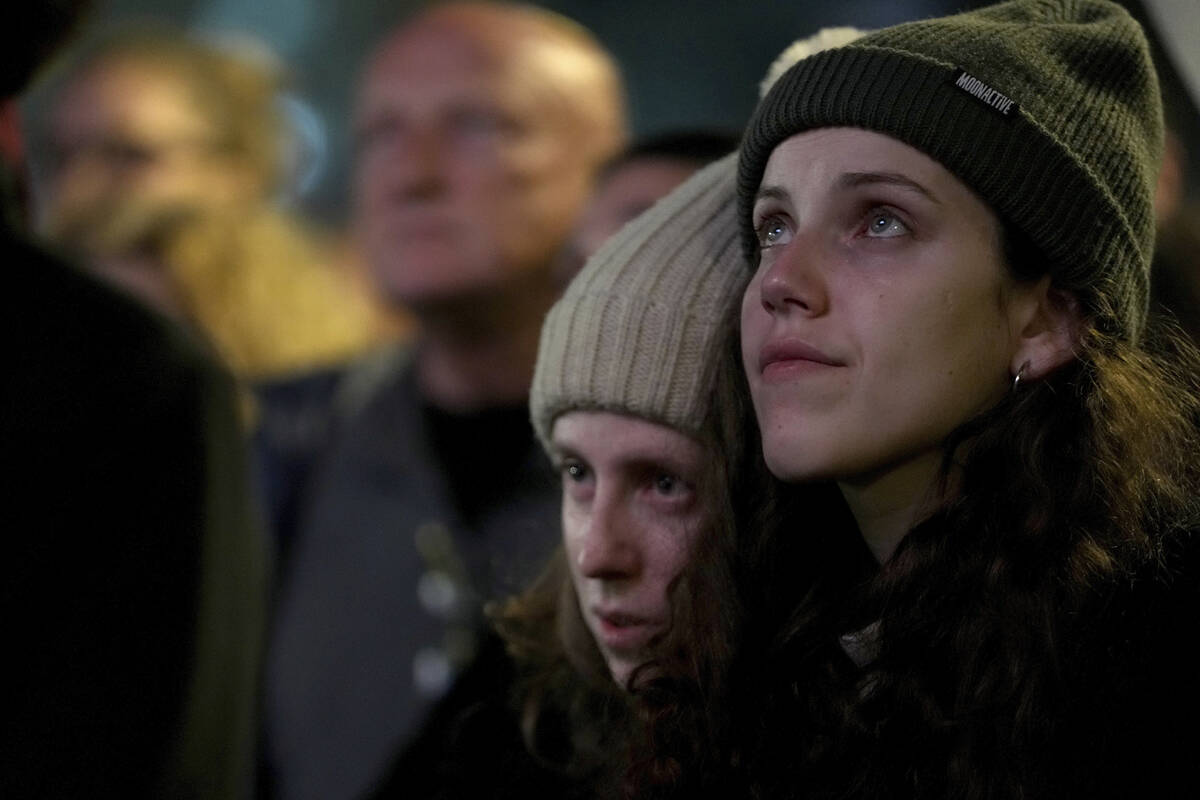Ceasefire between Israel and Hamas will go into effect Sunday morning, officials say
CAIRO — The ceasefire between Hamas and Israel will go into effect Sunday at 8:30 a.m. local time, mediator Qatar announced Saturday, as families of hostages held in Gaza braced for news of loved ones, Palestinians prepared to receive freed detainees and humanitarian groups rushed to set up a surge of aid.
But in a national address 12 hours before the ceasefire was to start, Israeli Prime Minister Benjamin Netanyahu said the country was treating the ceasefire as temporary and retained the right to continue fighting if necessary. He claimed he had the support of U.S. President-elect Donald Trump, who told NBC News that he told the prime minister to “keep doing what you have to do.”
Netanyahu also asserted that he negotiated the best deal possible, even as Israel’s far-right Public Security Minister Itamar Ben-Gvir said he and most of his party would resign from the government in opposition to it.
The prime minister earlier warned that a ceasefire wouldn’t go forward unless Israel received the names of hostages to be released, as agreed. Israel had expected to receive the names from mediator Qatar. There was no immediate response from Qatar or Hamas.
The overnight approval of the ceasefire deal by Israel’s Cabinet, in a rare meeting during the Jewish Sabbath, set off a flurry of activity and a fresh wave of emotions as relatives wondered whether hostages would be returned alive or dead. Families and thousands of others rallied once more Saturday night in Tel Aviv.
“Please keep going and saving lives,” said Anat Angrest, whose son Matan Angrest is still held in Gaza.
The pause in 15 months of war is a step toward ending the deadliest, most destructive fighting ever between Israel and the Hamas terrorist group. The deal was achieved under joint pressure from Trump and the outgoing administration of President Joe Biden ahead of Monday’s inauguration.
The first phase of the ceasefire will last 42 days, and negotiations on the far more difficult second phase are meant to begin just over two weeks in. After those six weeks, Israel’s security Cabinet will decide how to proceed.
Israeli airstrikes continued Saturday, and Gaza’s Hamas-run Health Ministry said 23 bodies had been brought to hospitals over the past 24 hours.
And sirens sounded across central and southern Israel, with the military saying it intercepted projectiles launched from Yemen. Iran-backed Houthi terrorists there have stepped up attacks in recent weeks, calling it solidarity with Palestinians in Gaza.
In the ceasefire’s first phase, Israeli troops are to pull back into a buffer zone inside Gaza.
In a post on X, Qatar’s foreign minister advised Palestinians and others to exercise caution when the ceasefire goes into effect and wait for directions from officials.
Israel’s military later said Palestinians will not be able to cross the Netzarim corridor that runs across central Gaza for the first seven days of the ceasefire, and it warned Palestinians not to approach Israeli forces.
Still, anticipation was high.
“The first thing I will do is go and check my house,” said Mohamed Mahdi, a father of two who was displaced from Gaza City’s Zaytoun neighborhood.
In the ceasefire’s first phase, 33 hostages in Gaza are set to be released over six weeks in exchange for 737 Palestinian prisoners held by Israel. Israel’s justice ministry has published a list of the prisoners, all younger or female. An organization that represents victims of Palestinian attacks vowed to petition Israel’s Supreme Court to stop the release.
According to the ceasefire plan approved by Israel’s Cabinet, the exchange will begin at 4 p.m. local time Sunday. The plan says three living female hostages will be returned on Day 1, four on Day 7 and the remaining 26 over the following five weeks.
Among those expected to be released is the youngest hostage, Kfir Bibas, whose family marked his second birthday Saturday. The child has become a symbol across Israel for the helplessness over the hostages’ plight.
During each exchange, Palestinian prisoners will be released by Israel after hostages have arrived safely.
Also to be released are 1,167 Gaza residents who were not involved in the Oct. 7, 2023, Hamas-led attack that sparked the war. All women and children under 19 from Gaza held by Israel will be freed during this phase.
All Palestinian prisoners who were convicted of deadly attacks will be exiled to Gaza or abroad — some for three years and others permanently — and barred from returning to Israel or the West Bank.
The remaining hostages in Gaza, including male soldiers, are to be released in a second phase to be negotiated during the first. Hamas has said it will not release the remaining captives without a lasting ceasefire and a full Israeli withdrawal.
Gaza should also see a surge in food, medical supplies and other humanitarian aid.
Egypt’s foreign minister said the Rafah crossing, Gaza’s main gateway to the outside world, will start operating soon.



















